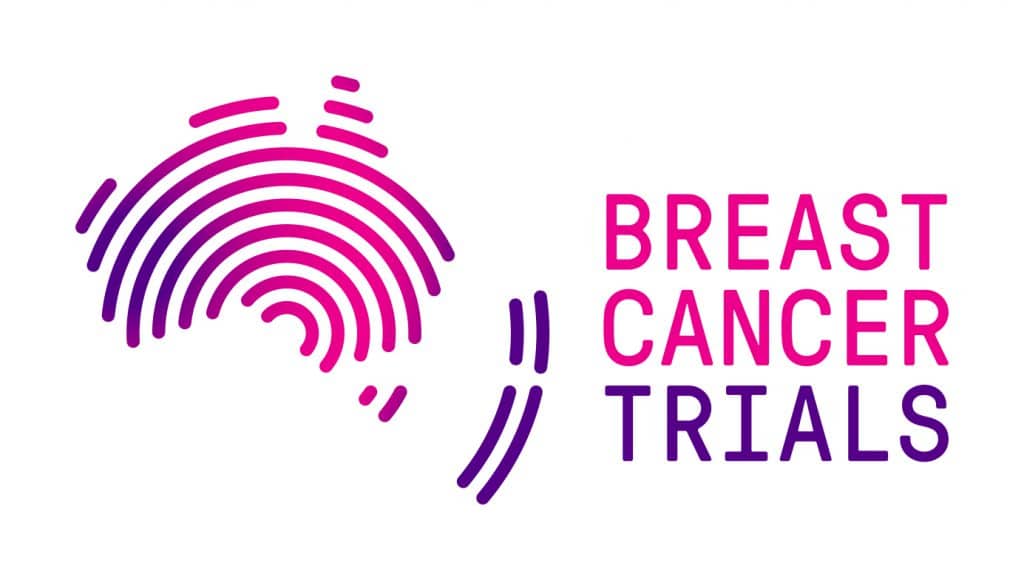What is a Fear of Recurrence?
The fear of breast cancer coming back is a very real and common concern for many people diagnosed with breast cancer.
“So, after a breast cancer diagnosis, it’s really understandable that women will have a concern about the cancer returning or progressing. So, a fear of cancer recurrence is essentially a fear about cancer recurring or coming back in the breast or in another part of the body.”
“It really entails a worry or concern, and it can range from a normal level of concern to quite significant, persistent thoughts and anxiety. So, women tell us that managing a fear of cancer recurrence is one of their most significant unmet needs and around 40-70% of those women, the concern is so severe that it impacts their daily quality of life.”
“So, this is a really important area of research for us to better understand.”
Listen to the Podcast
Listen to our conversation with Ms Michelle Sinclair as she discusses the role that breast cancer treatment plays in the development of fear of recurrence and the impact that this fear has on a patient’s quality of life.
What are the Side Effects of Having a Fear of Recurrence?
“Fear of recurrence ranges from no concern at all, where the thought doesn’t enter the woman’s mind, to quite severe debilitating anxiety. And for women who have the more severe fear cancer recurrence, they describe that they’re unable to plan for the future, that their enjoyment is really impacted, they’re hypervigilant to signs of recurrence in their bodies. And so, it really can impact their quality of life in a significant way.”
“So, this is really important, as fear of cancer recurrence is unlikely to reduce without interventional treatment, so it can last for years into survivorship.”
“I think firstly it’s really important to establish that having thoughts about fear of cancer recurrence is not an overreaction, it’s not an irrational fear. So, the threat is real.”
How can People with this Fear be Supported?
“When this fear and this concern impacts all aspects of someone’s life and is persistent and really distressing for them, and they can’t plan holidays for the future, and they really are noticing that they are concerned about any change in their body for a sign of recurrence, that’s when intervention and treatment can really assist these women to live with a fear of cancer recurrence in a better way and to reduce the impacts that it has on their lives.”
“So, treatments are quite effective and there’s a broad range of treatments that are available, the most common of which is cognitive behavioral therapy, which is an umbrella term to refer to several different therapies that really build coping strategies and skills for women. They have been shown to reduce the frequency and intensity of fear of cancer recurrence thoughts, and really improve quality of life into survivorship for breast cancer patients.”
“We actually don’t know enough about how different cancer treatment pathways impact fear of cancer recurrence or psychosocial outcomes. And so, this is an important step so that we can have a better idea of what may contribute to more severe levels of a fear of cancer recurrence.”
What does your Research Project Involve?
“We need to be aware of different treatments and how they impact the levels of fear so that we can be more attuned to those patients who might be more vulnerable and who we intervene with or provide better support for sooner.”
“So, the project I’m working on is looking at three treatment pathways, with early breast cancer that have been recommended. We’re then comparing the level of fear of cancer recurrence between these women to better understand how the fear of cancer recurrence may be influenced by their recommended treatment pathway.”
Why are you Investigating Data of the PROSPECT Trial and De-escalation of Treatment?
“So, there’s a growing amount of evidence that de-escalation is an appropriate treatment pathway for some women with early breast cancer, and therefore this might become a more common treatment pathway. But we don’t understand how de-escalation can impact psychological wellbeing or fear of cancer recurrence in these women.”
“And so that’s really important for us to understand if this is to become a usual care pathway or a more common form of treatment. So, we want to understand if de-escalation is associated with increased fear of cancer recurrence. So, we’re asking the question, ‘does receiving less treatment increase the amount of fear of cancer recurrence women have?”
“PROSPECT involves screening women with early breast cancer via MRI to assess suitability for de-escalation. And we’ll be exploring levels of fear of cancer recurrence in the women on the PROSPECT trial, but also in another sample of women who had usual care, so they weren’t on a clinical trial.”
“And this way we’re able to compare the level of fear of cancer recurrence across different treatment pathways and better understand how their treatment may have impacted their quality of life and their levels of fear.”
Is this a New Area of Research?
“Our understanding of fear of cancer recurrence in breast cancer patients is quite well established, but as de-escalation of radiation therapy as a potential treatment pathway is a relatively new area, understanding how fear of cancer occurrence in, women who undergo de-escalation is definitely a new area and we don’t know enough about it at all.”
Support Us
Help us to change lives through breast cancer clinical trials research



